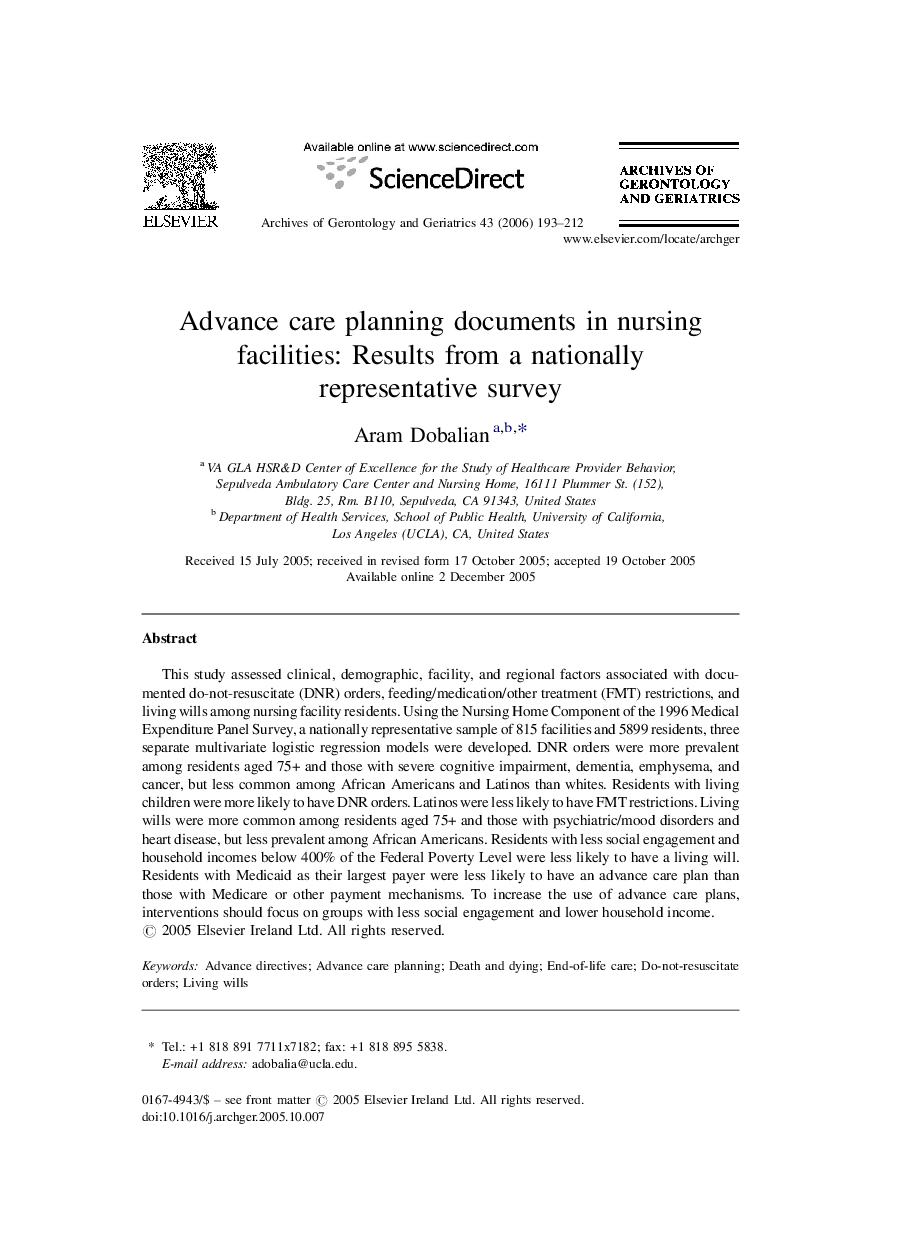| Article ID | Journal | Published Year | Pages | File Type |
|---|---|---|---|---|
| 1904215 | Archives of Gerontology and Geriatrics | 2006 | 20 Pages |
This study assessed clinical, demographic, facility, and regional factors associated with documented do-not-resuscitate (DNR) orders, feeding/medication/other treatment (FMT) restrictions, and living wills among nursing facility residents. Using the Nursing Home Component of the 1996 Medical Expenditure Panel Survey, a nationally representative sample of 815 facilities and 5899 residents, three separate multivariate logistic regression models were developed. DNR orders were more prevalent among residents aged 75+ and those with severe cognitive impairment, dementia, emphysema, and cancer, but less common among African Americans and Latinos than whites. Residents with living children were more likely to have DNR orders. Latinos were less likely to have FMT restrictions. Living wills were more common among residents aged 75+ and those with psychiatric/mood disorders and heart disease, but less prevalent among African Americans. Residents with less social engagement and household incomes below 400% of the Federal Poverty Level were less likely to have a living will. Residents with Medicaid as their largest payer were less likely to have an advance care plan than those with Medicare or other payment mechanisms. To increase the use of advance care plans, interventions should focus on groups with less social engagement and lower household income.
